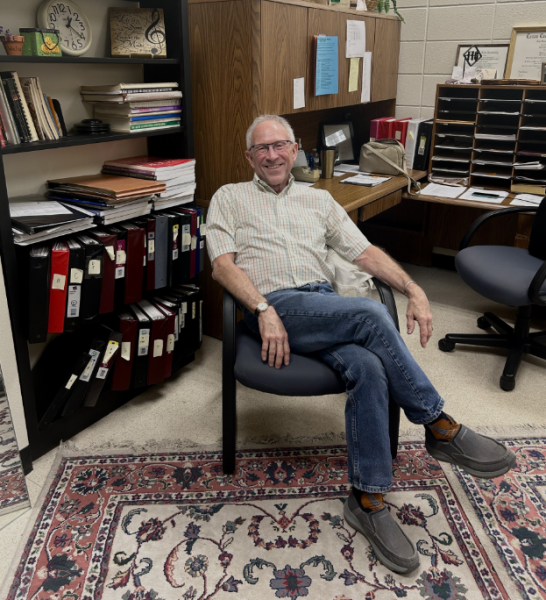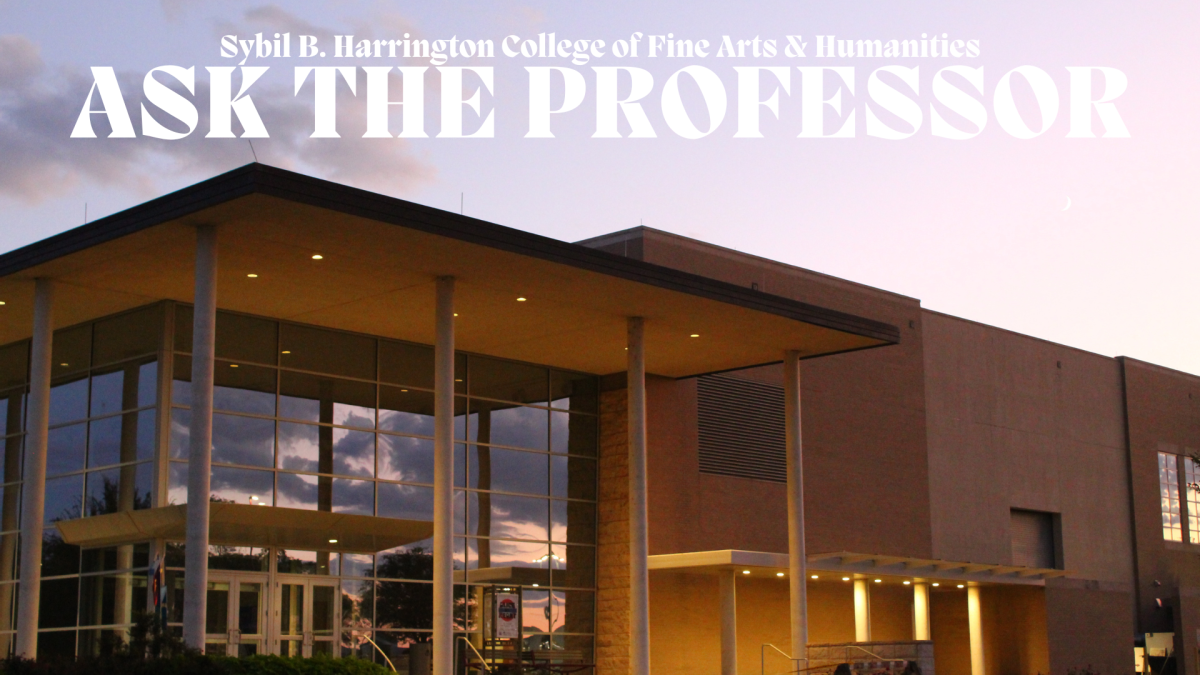Dr. Robert Hansen is a part-time voice teacher, and the former director of the School of Music for the Sybil B. Harrington College of Fine Arts and Humanities at West Texas A&M University.
Though Hansen is retired, he has graciously returned to WT to teach some voice courses for the School of Music.
“I’m retired from full-time at WT, I was here full-time for 37 years,” Hansen said. “But how did I get here, and why am I in the field I’m in? Well, I grew up in a musical family. I kind of learned at an early age that I was all things music. [I] played violin and viola in the high school orchestra, sang in the choir, and also did leads in the high school musical.”
Despite that, Hansen did not start out as a music major in school.
“I set out at Northwestern University to become a theatre major,” Hansen said. “For various reasons, it wasn’t where I ended up. So I studied music for a little bit, and then I said, ‘You know what, I don’t see that I am going to make a career as a professional actor or singer, and that was my aspirations, so I went out and got an undergraduate degree in English and sociology. Then I started law school at Boston University, but I had become involved in one of the choral groups at the school, and those people said, ‘Why are you doing what you’re doing? You need to be over here.’ So I finally accepted that this really is my calling.”
Hansen now only teaches some voice courses, but he has taught a great deal of musical courses over his career.

“Now I’m just teaching private voice lessons,” Hansen said. “During my time teaching, that was the main part of the load. But I also taught foreign language diction, which is French, Italian, and German diction, because classical singers need that training. I also taught song literature, and I would say that the course I like teaching the most was vocal pedagogy. The understanding of the physics of singing and the anatomy and physiology of singing. You can’t put your hands on this [voice] instrument like you can a piano or something. It’s a broad variety of stuff built all around not just training singers, but then providing them with all the skills they need to master their craft too.”
Hansen describes his teaching style as low-stress.
“In the studio, the main objective is to have an atmosphere that’s conducive to making good progress,” Hansen said. “For singing, that means being completely at ease and comfortable. So it’s very lowkey, low-stress. I don’t even like to cast that as a sort of professor, student thing. It’s more like we’re a team working together. But when I’m teaching something like vocal pedagogy, instead of just giving a lecture, I ask them the questions, ‘Why do you think this works the way it does?’ I encourage people to develop critical thinking.”
Hansen knew something about WT was special from the start.
“One other thing I think has been a reason for my success here [at WT] has been accessibility to students, and the importance of being a role model,” Hansen said. “Especially in the arts, with theatre majors and music majors, there’s a lot of students struggling to find their identity and know that it’s okay to be who you are. And having that one-on-one relationship, I have had the opportunity to be an empathetic listener and encourage students to be comfortable with who they are.”










